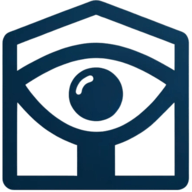7 Surprising Things Vision Insurance Covers
Navigating the nuances of vision insurance can be a complex journey, but it doesn't have to be a trek into the unknown. This article demystifies the subject by offering expert insights into what your plan may cover, from routine screenings to unexpected eye care needs. Discover how to make the most of your benefits and avoid common pitfalls with guidance from those who know the field best.
- Ask What's Covered Before Extra Tests
- Review Insurance Policy Details Thoroughly
- Schedule Routine Vision Screenings
- Use Coverage for Glasses or Contacts
- Look for LASIK Surgery Discounts
- Check for Prescription Sunglasses Coverage
- Know Your Coverage for Eye Injuries
Ask What's Covered Before Extra Tests
Went in for a regular eye exam, nothing crazy, just needed a new prescription. The doctor mentioned a retinal scan, said it was good for catching issues early. I figured it was routine, but then they hit me with, "Oh, your insurance doesn't cover that," like it was some luxury upgrade.
So apparently, my plan will help me see worse but won't help me stop my eyes from getting worse. Makes sense. I paid out of pocket, but now I always ask what's covered before they start running extra tests. Learned that the hard way.

Review Insurance Policy Details Thoroughly
One experience that stands out is when I needed a specific eye treatment, and I was surprised by how my vision insurance didn't fully cover it. The treatment I required was considered a "specialist procedure" by my insurance, which I hadn't realized was categorized differently than routine exams or basic prescriptions. Although the initial exam and standard prescription lenses were covered, the procedure I needed was only partially covered, leaving me to pay a larger out-of-pocket cost than expected. From this experience, I learned the importance of thoroughly reviewing the details of my insurance policy, especially the nuances of coverage for different types of treatments. It was a reminder to always check with the insurance provider in advance before scheduling appointments or procedures, especially those outside of the usual check-ups. Since then, I've become more proactive about clarifying what is and isn't covered, including asking for an estimate of costs for any treatments that might fall under a gray area. This has helped me avoid unexpected financial surprises and make more informed decisions about my care.

Schedule Routine Vision Screenings
Routine vision screenings are often covered by vision insurance. This means you can keep your eyes healthy without worrying about the cost. Vision screenings help detect any problems early on, which is important for maintaining good vision.
Regular checkups can prevent small issues from becoming big problems. It's important to take advantage of this benefit and schedule your routine vision screenings today.
Use Coverage for Glasses or Contacts
Vision insurance often covers the basic costs of glasses or contacts. This support can make a significant difference for those who need corrective lenses. Having this coverage ensures that you can see clearly without a large financial burden.
It also helps in choosing the best option for your vision needs. Take a moment to review your vision insurance policy and make sure to use this benefit.
Look for LASIK Surgery Discounts
Many vision insurance plans offer discounts on LASIK surgery. This can make the appealing option of correcting vision through surgery more affordable. LASIK can greatly improve your vision and reduce the need for glasses or contacts.
Investigating this coverage is a step towards better vision. Consider looking into your vision insurance policy for possible LASIK discounts.
Check for Prescription Sunglasses Coverage
Prescription sunglasses are another surprising benefit covered by some vision insurance plans. This allows you to protect your eyes from harmful UV rays while still seeing clearly. Wearing prescription sunglasses can also enhance your comfort and style.
It's an added convenience that might go overlooked. Check your vision insurance benefits to see if you're eligible for prescription sunglasses.
Know Your Coverage for Eye Injuries
Eye injury treatment is an essential aspect that a good vision insurance plan should include. Coverage for such treatments can help alleviate the costs associated with unexpected accidents. Timely treatment is crucial for preventing long-term damage to your eyes.
Knowing you have this coverage can provide peace of mind. Make sure to find out exactly what your vision insurance covers in terms of injury treatment.

